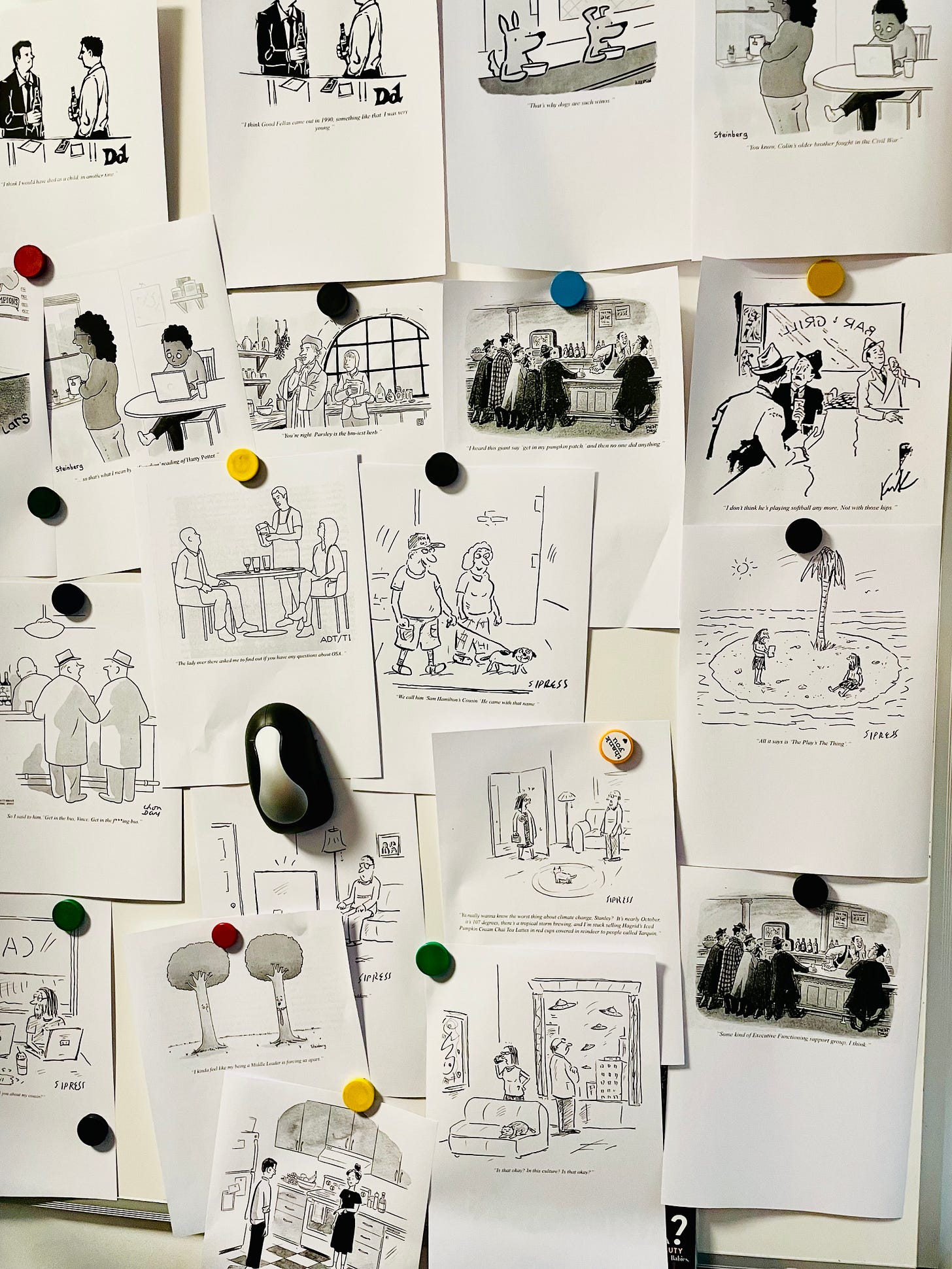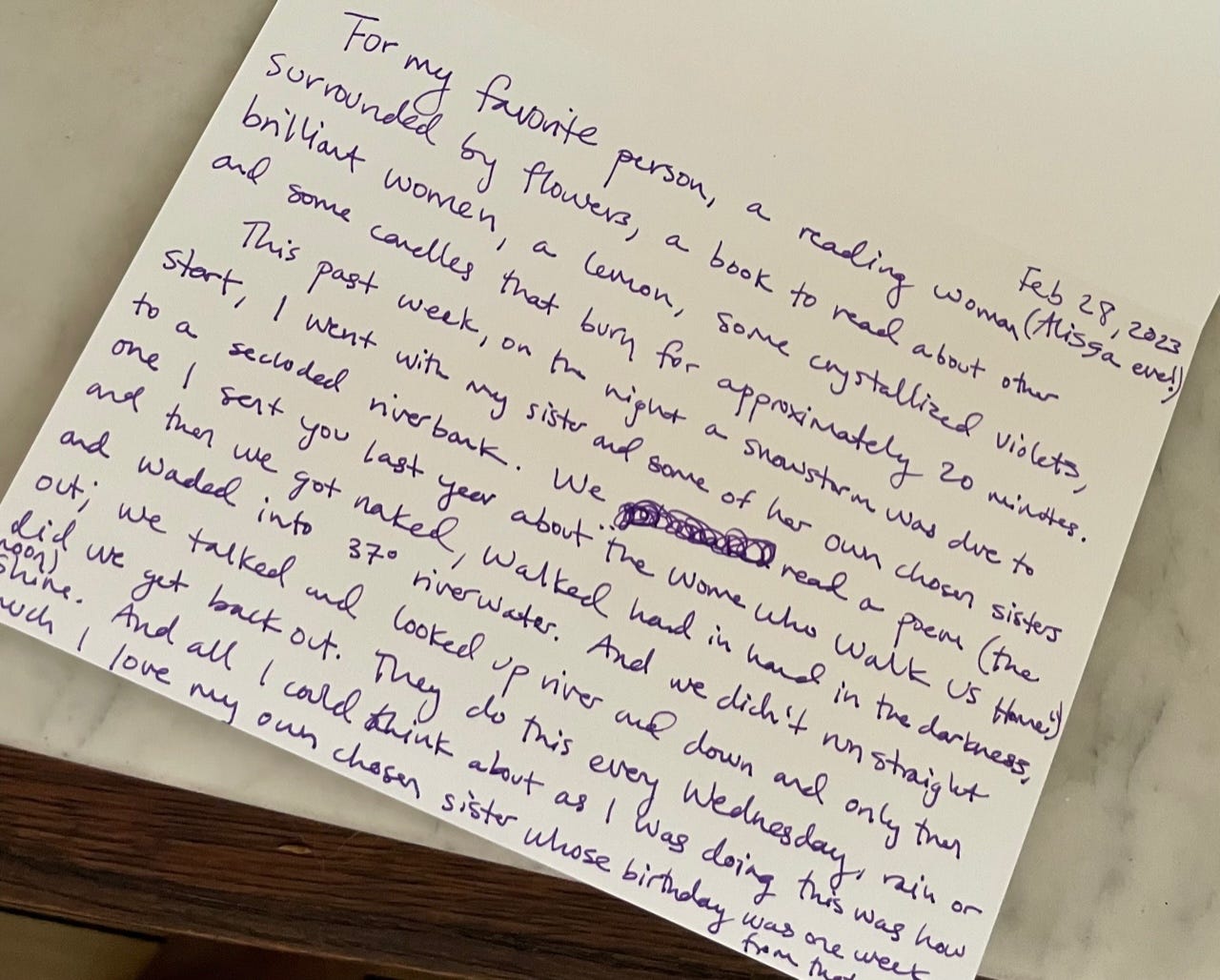Love Letters
for friends who share words
For a while, I chose mean friends. “Chose” might not be the right word, and maybe “mean” is also wrong when we’re talking about elementary and middle school children. Those years are a cement mixer of attaching oneself to whatever matter is near at hand, and most kids just haven’t yet learned to muffle their meanness. But I was certainly drawn to friends for reasons other than their kindness and generosity.
In sixth grade, a friend slapped me in her bedroom. I’m not sure what precipitated it, but I remember the sting and I remember being shocked and I remember even as my face burned, knowing I wasn’t completely blameless. There was a runway leading up to this slap, and I’d paved a good portion of it. Most of our relationship was outdoing one another on her diving board or writing notes to or about each other in science class. We were both deeply jealous of and deeply dissatisfied with each other from the beginning. Making do with our shared middleness on the popularity hierarchy.
Looking back, I’ve been cavalier with many people, often more concerned with appearances than connection. I was a mean friend too.
In the high school cafeteria, a friend stood up from the table and said, “when I’m talking, you’re always looking around and over my head.” In my adult life, I’ve come to know this as the move of the investment banker dad at parent-teacher conferences. Always looking for the next best person to enter the room.
Over the years, a few good friends have stopped me midline, a caesura to my reckless behavior. In freshman year of college, I came home at 2AM after a party to a folded note on my desk from my friend Heather. Her note began with how much she cared about me and the vulnerability made my feckless teenage self squirm. So much of my language in friendship was irony that real emotion, stated baldly and in print, felt like picking your nose in public. The letter went on to tell me, directly and full of love, why she didn’t feel I was living up to my side of the friendship.
I ran down the hall to Heather’s room, climbed the bunk bed, curled myself around her sleeping body, tried to match my breathing to hers, and shook in gratitude until I fell asleep.
Since then, I have received many heartfelt cards and letters, but none has changed me as this folded note did. It woke me up, to friendship and to honest emotion.
My husband’s friendships were one of the things that first attracted me to him twenty years ago. The way people sought him out for advice, the seriousness with which he took their problems and beliefs, the openness with which he expressed his problems and love for his friends. Ben still talks almost daily to a group of childhood friends, five guys with a wildly active WhatsApp chat. Only in recent years, as I’ve watched a battery of separations and bitter divorces, do I see what a red flag a person without friends is. Without friends, what release valve does a relationship have?
The negotiations are lighter with friends. There’s no household chores to attend to, no retirement savings to plan. There’s a French proverb that says friendship is like love without wings, but I’d argue friendship is wings, unencumbered by the body’s needs, the household’s needs, the needs of a romantic partnership. Friendship exists on a freer plane, one of mind and spirit.
In sharing less of life with friends, there is room to share more. More of our landscapes, our weather, our stories, ourselves.
Today, one friend types up lines we say in the office, finds a New Yorker cartoon to go with them. He prints them out, puts them silently up on a whiteboard. I have almost a decade’s worth of quotations and notes from him scattered in desk drawers, on bulletin boards. He’s brilliant, funny, full of words he wants to share.
Last night, I forwarded a friend an essay that made me think of him. He messaged back, “It’s a cool, gray, October afternoon. I’m sitting in my car in the mostly empty parking lot, wiping away a few tears after reading this incredible piece. What a gift. Exactly what I needed.”
Emerson writes in an essay on friendship, “I awoke this morning with devout thanksgiving for my friends, the old and the new.” This morning I awoke to a conversation between friends about an essay on the shifting expectations of fatherhood, a snapshot of a letter Sylvia Plath sent to Ted Hughes from an art fair one of my former students attended, a paragraph from Jenny Odell’s Saving Time, a review of Eve by Cat Bohannon.
I’m not rich, but sometimes I’m embarrassed by the glut of gifts I’ve gotten in the form of words. “I thought you might like this”, for me, is a form of kinship.
To trust someone with words you adore, words that infuriate you, words that change you, words that you think they need, is love.
And I fear I’ll never be able to send all the words I want to send in this lifetime.
I don’t have the gift of time. I have a full-time job, a part-time job, four young children, and I live in an extraordinary city that I refuse to ignore. But what too little time has taught me, what Heather taught me 26 years ago, what friends have taught me since is to say the words, to name the feelings, and when I don’t have the words to express them, to send someone else’s words.
To say to them: how deeply in love I am with you, my friends.
many thanks this week to Sandra Yvonne of Sunday Candy for her loving words of feedback.




Love, love, love this. A full time job, part time job, and 4 kids?! I am in awe by the depth and clarity of your voice, amidst the chaos that I imagine is your life Alissa. So many parallels in our lives-- minus the multiple jobs, and the # of kids. I wish I had reached out when I was in London and the kids could have played together at Hyde park, on that boat thing with the sand while we scribbled notes and did some writing together. Next time.
What a beautiful reminder of the value of friends in the communities we create.
Each paragraph was visually rich, but this was both lavish and memorable:
In sharing less of life with friends, there is room to share more. More of our landscapes, our weather, our stories, ourselves.